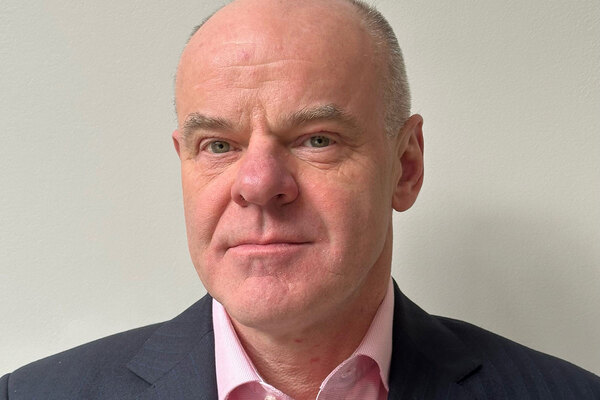You are viewing 1 of your 1 free articles
More than 40 housing associations back planned £1bn bond issue
There are 45 housing associations backing aggregator Morhomes’ plan to launch a £1bn bond issue.
Morhomes, which is owned and run by 45 housing associations including Genesis, Sovereign and A2 Dominion, intends to launch the bond issue in the summer.
Each sponsor housing association has committed £20,000 to fund Morhomes’ initial activities, with the aim being to issue another £1bn bond the following year, and another the year after that.
The proposed bonds would be listed on the London Stock Exchange, but Morhomes itself will remain a private organisation.
The aggregator hopes to reduce the cost of borrowing for its sponsor housing associations by around 0.3% compared to what they could achieve by issuing bonds in their own names.
Patrick Symington, interim chief executive of Morhomes, told Inside Housing he hopes to achieve this by marketing the organisation to a wider pool of investors using the credit reputation of the sector as a whole, rather than the credit ratings of individual associations.
He added: “Morhomes has been backed by 45 associations (and growing) and is well down the path of setting itself up for its first bond issue.
“Following a very well-attended session at the National Housing Federation finance conference we have some real momentum gathering, with the sector really getting behind the project.”
The borrowing vehicle was started in July last year by JC Rathbone Associates, which set up working groups to produce a comprehensive report in January.
It is owned and run by housing associations, with Neil Hadden, outgoing chief executive at Genesis, as chair. Three of its eight directors are Ann Santry, outgoing chief executive at Sovereign; Robert Young, chief executive at North West association Torus; and Matthew Bailes, chief executive of Paradigm.
Nick Jackson, director of business services and development at Plymouth Community Homes, which is one of Morhomes’ sponsor housing associations, told Inside Housing: “There is a feeling that the sector isn’t getting the right sort of spreads that relates to the credit rating of the sector.
“If, with the combination of all the investors involved, we can start to get to a public issue of around £1bn, the feeling is we can attract much better spreads in the market, which obviously reduces the overall cost of funding.”
Update: at 17.10 on 27.3.18 This story was updated to clarify that the three directors named are not Morhomes’ only directors.
The Paper Trail: The Failure of Building Regulations
Read our in-depth investigation into how building regulations have changed over time and how this may have contributed to the Grenfell Tower fire:
More episodes of The Housing Podcast
Review of the year 2019
As the year draws to an end, The Housing Podcast team wraps up the last 12 months, battles it out in a housing quiz, and looks ahead to 2020.
What did the Grenfell Inquiry phase one report say?
This week, Sir Martin Moore-Bick published his Phase One report from the public inquiry into the Grenfell Tower fire in June 2017. The 838-page report focuses on the events of that dreadful night: how the blaze started, how it spread so ferociously through the building, and how organisations including the emergency services responded.
Sir Martin has also produced recommendations aimed at preventing similar disasters from happening again. Our team has spent the last few days picking through the report, and in this episode of The Housing Podcast, we discuss the key points.
As Boris Johnson takes over at Number 10 Downing Street and appoints his new cabinet, the Housing Podcast team present their first ever 'emergency' episode, looking at whether he is set to shift the housing policy dial back towards home ownership.
The Homes Fit for Human Habitation Act is on the statute book. But what is it for? What does it do? And will it work?
Karen Buck MP, who guided the bill through parliament, along with housing lawyers Giles Peaker and Justin Bates – who wrote it – sit down with The Housing Podcast to answer all this and more.
Theresa May scraps the cap: what does it mean?
To the delight of councils across the country, Theresa May announced this week that she will scrap the Housing Revenue Account borrowing cap.
With the help of Eamon McGoldrick of the National Federation of ALMOs, in this week’s episode of The Housing Podcast we discuss the history of this contentious area of housing policy and look at what happens now.
The true cost of homelessness
Inside Housing has conducted in-depth research into the amount councils are spending on temporary accommodation for homeless people, with shocking results.
In this episode of The Housing Podcast, we take a look at the financial aspect of homelessness and discuss the figures with Matt Downie, director of policy and external affairs at Crisis.
Rating the Social Housing Green Paper
The Housing Podcast team is joined by David Pipe from the Chartered Institute of Housing and housing columnist Jules Birch to rank the proposals in the Social Housing Green Paper out of 10. Edited by Luke Barratt.
Listen or download here:
The supported housing saga
The government’s announcement this week that it will drop plans to change the way supported housing is funded brings to a close a nearly three-year cycle of lobbying against these proposals.
This week, The Housing Podcast looks back at this story, which began with a throwaway line in George Osborne’s Autumn Statement in 2015.
A brief history of council housing
In this week’s episode of The Housing Podcast we speak to John Boughton, social historian and author of Municipal Dreams: The Rise and Fall of Council Housing, about the five phases of local authority housing – starting in the East End of London in 1900.
Who has been the best housing minister since 2010?
The Housing Podcast team gets together to rank all the housing ministers of the modern Tory era, from Grant Shapps to Dominic Raab. There are a lot of them. Edited by Luke Barratt.
Listen or download here:
The Hackitt Review
This week, Dame Judith Hackitt released the findings of her building regulations review, commissioned by the government in the wake of the Grenfell Tower fire last June.
Featuring an interview with Dame Judith, the team takes a look at what was in the report – and why some people were less than impressed.











